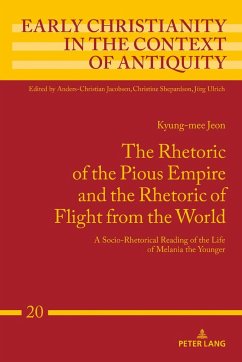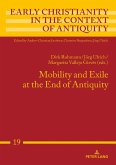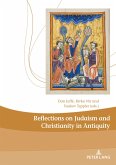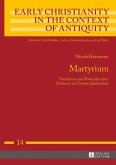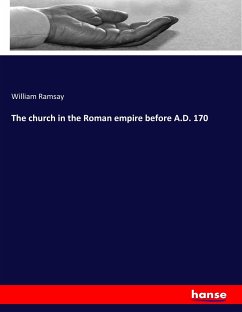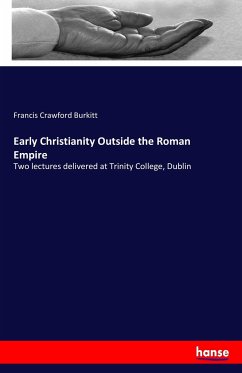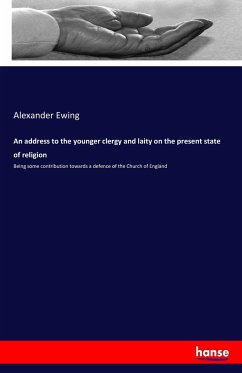This book aims to shed new light on asceticism of the heart and imperial Christian aspects in the ascetic life of Melania the Younger, in particular, and of a specific group of Roman aristocratic ascetic women, in general. The author draws on the examination of rhetorical language and textual production of the Life of Melania the Younger written in the fifth century. In so doing, the author investigates the broader religious and socio-cultural contexts of the two forms of conflicting rhetorics in the text, according to socio-rhetorical criticism. The tension of the dual subjectivity arising from the asceticism of the heart and the ideological and material aspects of Christian imperialism in the context of Jerusalem and Constantinople takes the reader into unexplored intellectual territory.
Bitte wählen Sie Ihr Anliegen aus.
Rechnungen
Retourenschein anfordern
Bestellstatus
Storno

